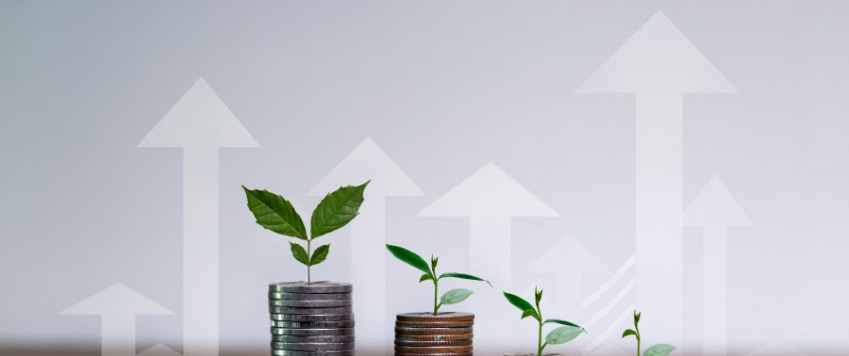Restrictions did not stop economic growth in the last quarter of the year

Adaptability and patience were the guiding principles for both businesses and consumers in 2020 in an environment of constantly changing rules of the game. The fact that the rules evolved, based on the success of the previous steps in countering the pandemic, did not make it easy to predict them. The ups and downs in the GDP development over the year resembled a roller-coaster ride in an amusement park, resulting, however, in no fun and amusement in most cases.
Although the state of emergency had to be declared again, support mechanisms were introduced along with restrictions, thus limiting the impact of the pandemic on the labour market and income level over the year. At the same time, the prolonged uncertainty might have turned the patience of the economic agents into the direction of modesty (cautiousness), making them carefully assess their needs and postpone part of their consumption or investment plans which were not directly affected by the restrictions; consequently, their savings increased.
Despite the restrictions, the overall economy has retained its growth, albeit its pre-crisis level has not been reached yet.
According to the GDP flash estimate of the Central Statistical Bureau, in the fourth quarter of 2020 GDP growth was 1.1% quarter-on-quarter, posting a 1.7% decline in annual terms (adjusted data).
The situation differs across sectors. The available monthly data suggest that last year manufacturing, agriculture and retail trade had been relatively more successful. The wood industry had gradually recovered from the impact of the unfavourable factors seen in 2019. The good grain harvest positively affected the performance of agriculture and also helped to support exports of goods. Meanwhile, retail trade, which brings everyday consumer goods to the markets, was among the sectors better suited to develop online services than in, e.g. recreational, cultural and accommodation.
During this year, the availability of the Covid-19 vaccine could facilitate a gradual revival of the services sectors that have been mostly hit by the restrictions on gathering and movement. However, we can only expect renewed strong growth in travel services exports and a new upswing in the hospitality sector, once it is possible to organise large public events, freely visit cultural venues and participate in other activities.
In several sectors, further growth will depend not only on successful containment of the pandemic, but also on other factors. For example, the transport sector, which saw a decline in freight transportation already before the pandemic, might be unable to recover its previous role in the economy both on account of competition and weaker demand for specific cargoes (e.g. coal) as a result of gradual transfer to greener business solutions in other European countries. Environmentally sustainable economic activity is becoming increasingly topical in other areas as well.
The beginning of this year has passed in "kitchen stadiums" and virtual travel, and this will slow down the overall growth in 2021: no rapid leap is expected. The available financing from the European Union funds will help support investment activity. Matching the availability of funds and the actual capability to use them (project development, progress of procurement process, technical capacity of project developers and availability of workforce with the required skills) could become a challenge.
Detailed data on GDP expenditure and changes in value added by sector are expected at the end of February.
Textual error
«… …»


